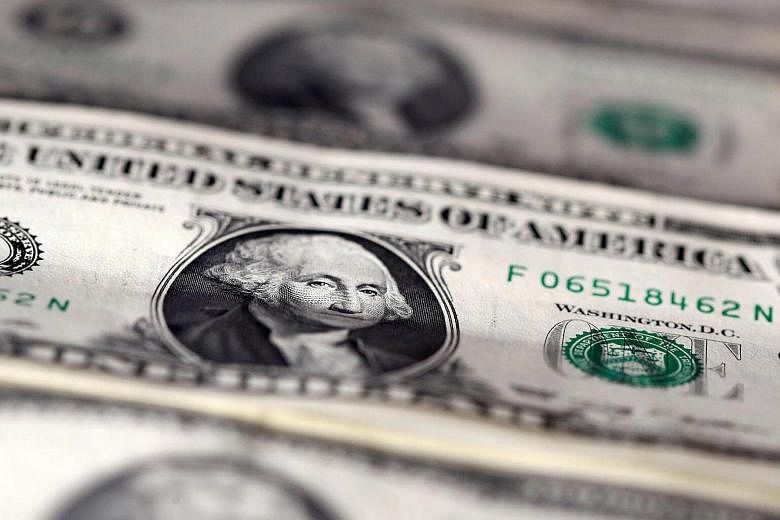SYDNEY (REUTERS) - The US dollar held near 14-year peaks on Wednesday (Jan 4) as an abundance of upbeat global economic data boosted Wall Street and signs of quickening inflation dented fixed-income debt.
The strength of the US currency pressured commodity prices and helped knock oil off an 18-month top, but gave Japan's exporter-heavy stock market a fillip.
The Nikkei climbed 1.2 per cent in early trade, recovering from two sessions of losses. Markets elsewhere in Asia were more hesitant having already rallied on Tuesday.
MSCI's broadest index of Asia-Pacific shares outside Japan was all but flat after rising for six straight sessions.
The brightening mood followed upbeat factory surveys from China, the euro zone and United States. Analysts at Barclays said their measure of global manufacturing confidence hit its highest since December 2013.
US factory activity accelerated to a two-year high amid a surge in new orders, while manufacturing in the euro zone grew at its fastest pace in five years.
Notably, the US ISM showed a sharp pick up in raw material prices which only fuelled expectations that the Trump Administration's proposed stimulus measures will generate more inflation.
The Dow ended Tuesday up 0.6 per cent, while the S&P 500 gained 0.85 per cent and the Nasdaq 0.85 percent.
Ford Motor jumped 3.79 per cent on news it would cancel a planned US$1.6-billion factory in Mexico and invest US$700 million at a Michigan factory, after Trump had harshly criticized the Mexico investment plan.
The same news slugged the Mexican peso, leaving it at its lowest-ever close against the US dollar.
The dollar's strength was broad-based and it hit a 14-year peak on a basket of currencies at 103.82 before profit-taking pulled it back a bit to 103.25.
It also ran into selling against the yen after failing to clear major chart resistance around 118.60/66. Early Wednesday it was trading at 117.74.
A floundering euro was pinned at US$1.0409, having dived as deep as US$1.0342 overnight.
The euro's decline came despite a jump in domestic bond yields after data showed German inflation hit its highest level in more than three years in December.
While much of the increase was due to transitory factors such as energy, long-term inflation expectations still rose to their highest since December 2015.
Overall euro zone numbers due later Wednesday are expected to show inflation picked up to an annual 1 per cent, from 0.6 per cent previously.
In commodity markets, the dollar's ascent caused losses for everything from copper to iron ore. Oil prices ended Tuesday down more than 2 per cent having been up as much at one stage.
Early Wednesday, US crude had clawed back 27 cents to stand at US$52.60 a barrel. Brent futures had yet to trade after falling US$1.26 to US$55.56 overnight.

